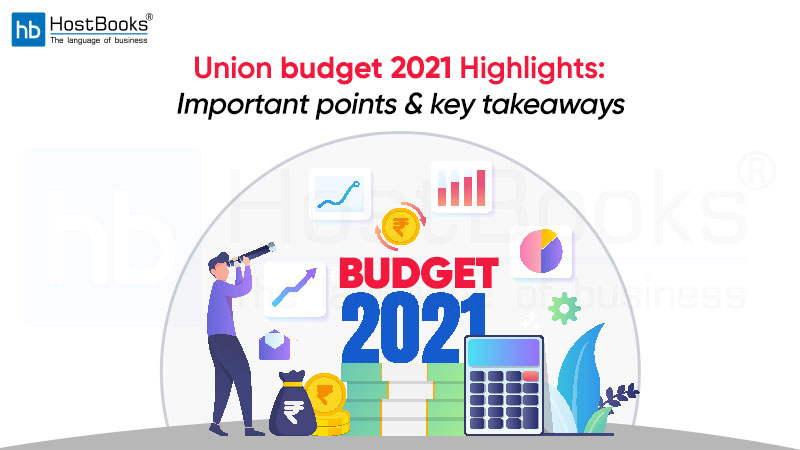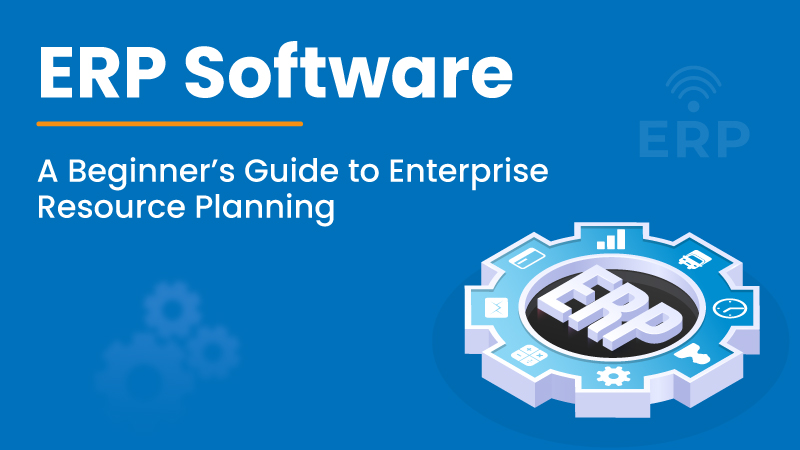Union Budget 2021 Highlights: Important Points & Key Takeaways

The Union Budget 2021-22 has been passed out at the time when India’s economy is reeling under the aftereffects of the coronavirus lockdown, the budget was presented by our Finance Minister Nirmala Sitharaman on Monday. There is a total spend of around Rs 2 lakh crore on healthcare, RS. 35000 crore for the coronavirus vaccine, and Rs. 1.10 lakh for railways. The government has aimed to complete 11,000 km of national highway infrastructure this year. The budget for 2021-22, meanwhile, an agriculture Infrastructure and Development Cess (AIDC) has been imposed Rs 2.5 per liter on petrol and Rs 4 per liter on diesel.
The finance minister also scrapped income tax compliance for senior citizens with certain conditions and said new rules would be notified for the removal of double taxation for NRIs, along with that, there is a reduction announced in the period of tax assessments among other measures. Here are the main highlights of budget 2021:
PART-A
Health and Wellbeing
For Health System – A new scheme PM AtmaNirbhar Swasth Bharat Yojana will be launched to develop capacities of primary, secondary and tertiary care Health system, strengthen existing national institution and create new institution for detection and cure of new and emerging diseases.
For Swachch Bharat, Swasth Bharat – The Urban Swachh Bharat Mission 2.0 will be implemented to focus on waste water treatment, source segregation of garbage, reduction in single-use plastic, reduction in air pollution, etc.
For Scrapping Policy – Govt. announced a voluntary vehicle scrapping policy to phase out old and unfit vehicles. In this scheme, vehicles would undergo fitness tests in automated fitness centers after 20 years in case of personal vehicle and after 15 years in case of commercial vehicle.
For Vaccines – Govt. provided Rs. 35,000 crore for Covid-19 vaccine in 2021-22.
Physical and Financial Capital and Infrastructure
For Power Infrastructure – A framework will be put in place to give alternative to consumers to choose from more than one Distribution company.
For Financial Capital – Govt. propose to consolidate the provisions of SEBI Act, 1992, Depositories Act, 1996, Securities Contracts (Regulation) Act, 1956 and Government Securities Act, 2007 into a Single Securities Market Act.
Increase FDI in Insurance Sector – Govt. propose to amend the Insurance Act, 1938 to increase the permissible FDI limit from 49% to 74% in insurance companies and allow foreign ownership and control with safeguards.
For Company Matters
- Definition of small companies under the Companies Act, 2013 is revised by increasing their threshold limit for paid up capital from ‘not exceeding 50 lakh’ to ‘not exceeding 2 crore’ and turnover limit from ‘not exceeding 2 crore’ to ‘not exceeding 20 crore’.
- To faster resolution of cases, e-courts system will be implemented.
- New version of MCA21 will be launched. This version will have additional modules of e-scrutiny, e-Adjudication, e-Consultation and Compliance Management.
- propose to allow OPCs to incorporate without any restriction on paid up capital and turnover, allowing conversion of OPCs to any other type of company at any time, reduce the residency limit for an Indian citizen from 182 days to 120 days to set up an OPC and also allow NRIs to incorporate OPCs in India.
Inclusive Development for Aspirational India
Agriculture – MSP regime undergone a sea change to assure price which is at least 1.5 times of the cost of production. The scope of “Operation Green Scheme” which is presently applicable to tomatoes, onions and potatoes will now be extended to include 22 perishable products.
Migrant workers and Labourers – A new scheme of “One Nation One Ration Card” has been launched which will help an Individual to claim their rations from anywhere in the country.
Financial Inclusion – Margin money requirement has been reduced from 25% to 15% under the scheme of “Stand Up India for SCs, STs and women”.
Reinvigorating Human Capital
School Education & Higher Education – 100 new Sainik Schools will be set up in partnership with NGOs/Private Schools/States. For accessing higher education in Ladakh it is proposed to set up a Central University in Leh.
Scheduled Castes and Scheduled Tribes Welfare – Target of establishing 750 Eklavya model residential schools has been set up in tribal areas. A new scheme known as “Post Matric Scholarship Scheme”, has been launched for the welfare of Scheduled Castes.
Skilling – Scheme naming “National Apprenticeship Promotion Scheme” launched in 2016 has been further realign for providing post-education apprenticeship, training of graduates and diploma holders in Engineering.
Innovation and R & D
- There has been seen a massive increase in the digital payments recently. In order to give further boost to the digital transactions, 1500 crores has been provided for a proposed scheme which will provide financial incentive to promote digital modes of payment.
- Four Indian astronauts are being trained on Generic Space Flight aspects, in Russia as a part of “Gaganyaan mission activities”.
Minimum Government, Maximum Governance
- A National Commission has been introduced in Parliament for Allied Healthcare Professional Bills with a view to ensure transparent and efficient regulation of the 56 allied healthcare professions.
- To provide ease in doing business for those who deal with Government or CPSEs and carry out contracts it is proposed to set up a “Conciliation Mechanism” and mandate its work for quick resolution of contractual disputes.
PART-B
Direct Tax
Government had introduced a series of reforms in the Direct tax system for the benefit of our taxpayers and economy. It is the impact of these reforms in the Direct tax system that Corporate tax rate slashed, The Dividend Distribution Tax too was abolished, burden of taxation on small taxpayers was eased by increasing rebates due to this reforms In 2020, the return filers saw a dramatic increase to 6.48 crore from 3.31 crore in 2014. The following changes has been proposed in the Budget 2021:
- Presently NRI’s are facing difficulty in taxability of accrued income lying in their foreign account. This arise due to mismatch in the taxation laws. They are also facing issues in getting credit of tax deducted in India in their foreign jurisdiction. In order to remove these difficulties in the budget 2021 some new rules proposed to be notified.
- Government seems to promote digitization of transaction, so in this budget limit for tax audit has been increased to 10 crore from 5 crore for those who carry out 95% of their transactions digitally.
- To reduce the compliance burden on taxpayer the government has proposed the setting up of “Dispute Resolution Committee” in order to further reduce litigation for small taxpayers, which will be faceless to ensure efficiency, transparency and accountability for being eligible person having a taxable income of up to 50 lakh and disputed income up to 10 lakh. In order to make taxation processes faceless “National Faceless Income Tax Appellate Tribunal Centre” shall be establish with the facility of personal hearing through video-conferencing.
- The time-limit for re-opening of assessment has been reduced to 3 years from 6 years even serious tax evasion cases too only if, there is no evidence of concealment of income of 50 lakh or more in a year with prior approval of the Principal Chief Commissioner or highest level officer.
- Individual who is of the age of 75 years or more having pension and interest income only is exempt from filing ITR. Also in such a case liability of necessary tax deduction is now transferred to the paying bank.
Indirect Tax
GST
In the Budget session, FM highlights the recent steps taken towards simplifying GST compliance like NIL Return through SMS, Quarterly return and monthly payment for small taxpayers, e-invoicing, validate input tax credit statement, pre-filled GST return, Staggered GST return, enhancing capacity of GSTN, new analytics and Artificial Intelligence to identify tax evaders etc. No new changes has been proposed in the budget however, FM assures the house that every possible measures will be taken to simplify GST and remove the anomalies such as inverted duty structure. Following are the Key highlights of this budget:-
Custom
In order to follow the Custom Duty Policy this budget has proposed the below changes.
- More than 400 old custom duty exemptions will be reviewed in this year
- FM proposed a revised custom duty structure in place of existing which will have validity up to 31st March following 2 years from the date of issue.
- Custom duty reduced to 7.5% on semis, flat, and long products of non-alloy, alloy, and stainless steels.
- withdrew some exemption on parts of chargers and sub-parts of mobiles. Export duty has been raised from Nil to 2.5% on some parts of mobiles.
- raised the duty on solar invertors from 5% to 20% and on solar lanterns from 5% to 15% as solar energy production increased in India.
- withdrew exemptions on tunnel boring machine and levied custom duty at 7.5% on it and 2.5% duty on its parts. Further custom duty on certain auto-parts has been increased to 15%.
- To Benefit MSMEs duty has been increased from 10% to 15% on steels screw and plastic builder wares, incentivize to exporters of garments, leather and handicraft items and withdrawing exemption on import of certain kinds of leathers to promote domestic production.
- No custom duty on steel scrap up to 31.03.2022 to provide relief to metal re-cyclers, mostly MSMEs.
- ADD and CVD removed on certain steel products.
- Custom duty reduced to 2.5% from 5% on copper scrap.
- brings nylon chain on par with polyester and other man-made fibers and reduced custom duty to 5% on caprolactam, nylon chips and nylon fiber & yarn.
- Custom duty on Naptha has been reduced to 2.5%
- proposed to rationalize the custom duty on gold and silver to maintain hiked prices.
- Duty on cotton has been increased from NIL to 10% and on raw silk and silk yarn from 10% to 15%
- New Agriculture Infrastructure and Development Cess (AIDC) on a smaller number of items has been proposed to improve existing agriculture infrastructure.

Try HostBooks
SuperApp Today
Create a free account to get access and start
creating something amazing right now!
















